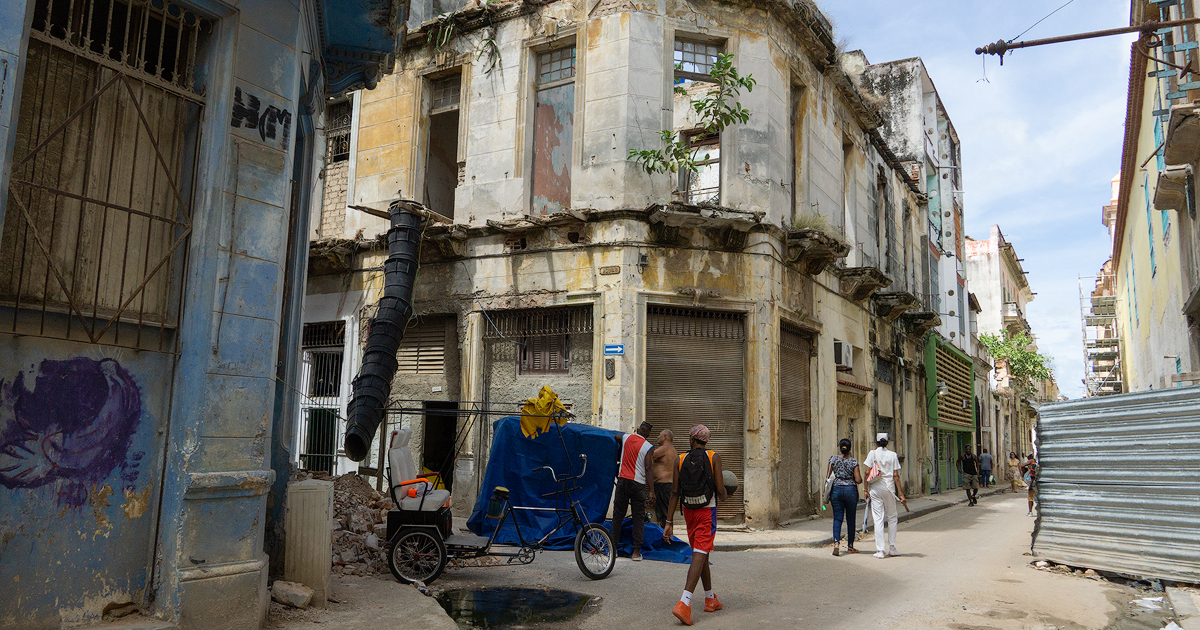
The Cuban economist and demographer Juan Carlos Albizu-Campos warned that Cuba is in the midst of a "humanitarian crisis," despite the regime's insistence on denying reality.
"There is an emergency situation that goes beyond a health emergency. It is a humanitarian crisis. (...) It is serious and the country is getting closer to the point of implosion," he said in an interview with EFE.
On July 20, the Cuban Parliament approved the new Immigration Law. In the presentation of the regulation before the National Assembly, the government recognized some alarming demographic indicators, such as a decrease of more than 10% in the country's population over three years.
They indicated that the figures were neither definitive nor accurate because a Population and Housing Census is required, but they have gone 12 years without conducting one, claiming they do not have the economic conditions for it.
Abizu-Campos in his research defends results that are more devastating than those of the government. One of his recent studies indicates that Cuba has lost 18% of its population between 2022 and 2023, due to causes such as migration.
The expert from the Christian Center for Reflection and Dialogue (CCRD) considers that the loss of nearly two million inhabitants since 2022 puts the country in figures of "refugee crisis."
He pointed out that indicators such as the increase in child poverty, maternal mortality, teenage pregnancies, or the decline in life expectancy in the country should be observed with concern.
Currently, Cuba has a population of under 10 million inhabitants, of which a very high percentage is no longer of working age. The country is losing its productive workforce, it is aging, and it is sunk in misery.
"The insistence on reforming the unchangeable has eroded the metabolism of the system and is leading it to a point of no return," warned Albizu-Campos.
In his view, Cuba is in a polycrisis, "a cascade of crises that overlap and act in a combined way," which has led to a drastic regression in the Human Development Index (HDI) of the United Nations Development Programme (UNDP), where it has fallen from 51st place in 2007 to 85th place currently.
"We are still in the high (HDI) range, but we were getting close to the very high range. Now we are approaching the medium range," said Albizu-Campos, warning that the next five years are crucial.
Regarding Cuban migrants, he detailed that they have a very clear socioeconomic profile: "57% are women, 77% are people between the ages of 15 and 59 with some purchasing power," the majority are individuals of working and reproductive age.
The exodus of young people and reproductive-age adults will leave an impact on the Cuban population pyramid that may take many decades to reverse.
This weekend, Cuban economist Juan Triana Cordoví, a professor at the University of Havana, criticized the economic measures of Miguel Díaz-Canel's government and deemed it "regrettable" that the president does not acknowledge responsibility for their failure.
"That the president describes the disaster is something he has been doing for some time now, at least twice a year. However, I believe he failed to delve into the causes, and that, in my opinion, is regrettable," said Triana Cordoví in Silvio Rodríguez's blog, commenting on a post titled "Opinions of economists by mail."
Ricardo Zúñiga, one of the main advisors of the administrations of Barack Obama and Joe Biden, the man who negotiated the thaw in diplomatic relations between Washington and Havana, warned this weekend about the magnitude of the concerning mistakes of the government on the island.
"We are working under a regime without a plan, without a path to follow, without a way out," said Zúñiga. "They are allowing not only economic collapse but also social collapse," he concluded.
The policies of the Cuban government are condemning the population in 2024, but also those who will reside in the country in the next decade, when they will have to deal with issues such as the pressure on public accounts to cope with the number of vulnerable retirees they will have.
In Cuba, natural growth is negative, with more people dying than being born. This phenomenon is not new and is currently exacerbated by a also negative migratory balance.
The population will continue to decline for many more years, and if the appropriate economic changes are not made immediately, the "implosion" may be closer than the government thinks.
What do you think?
COMMENTFiled under: